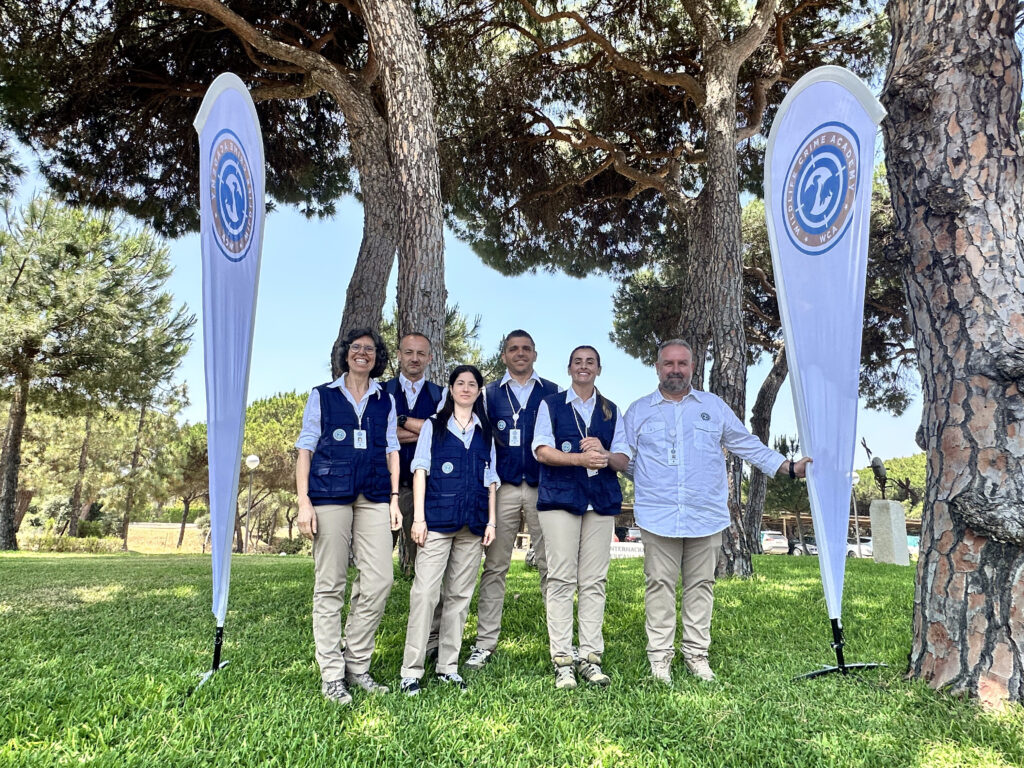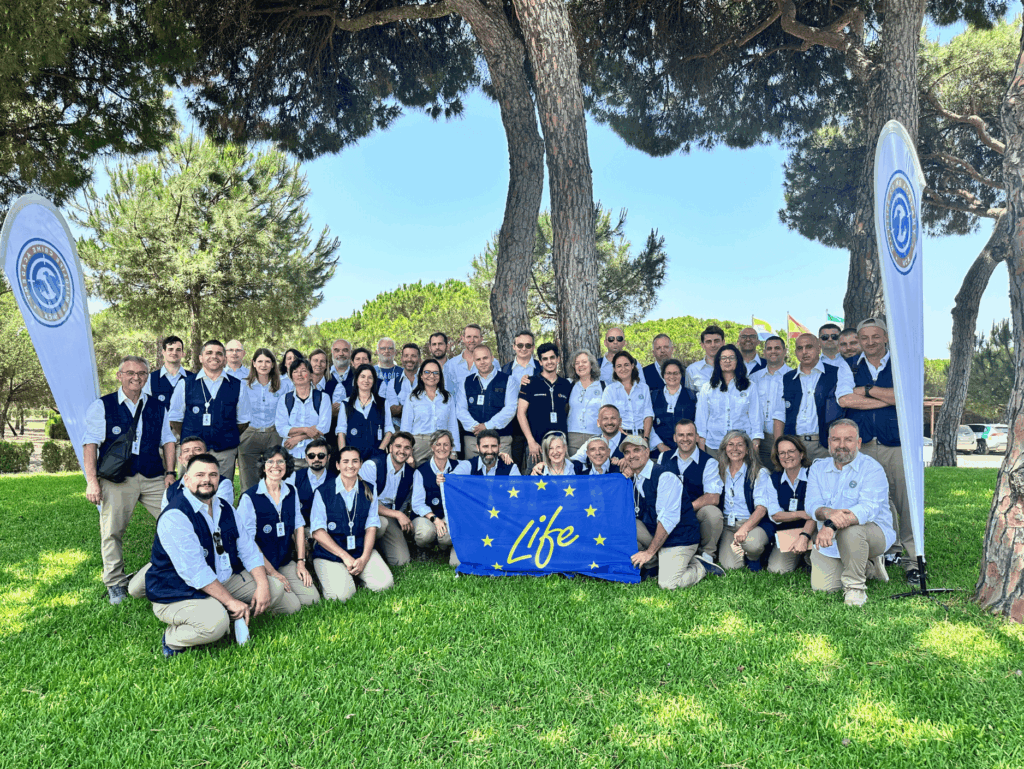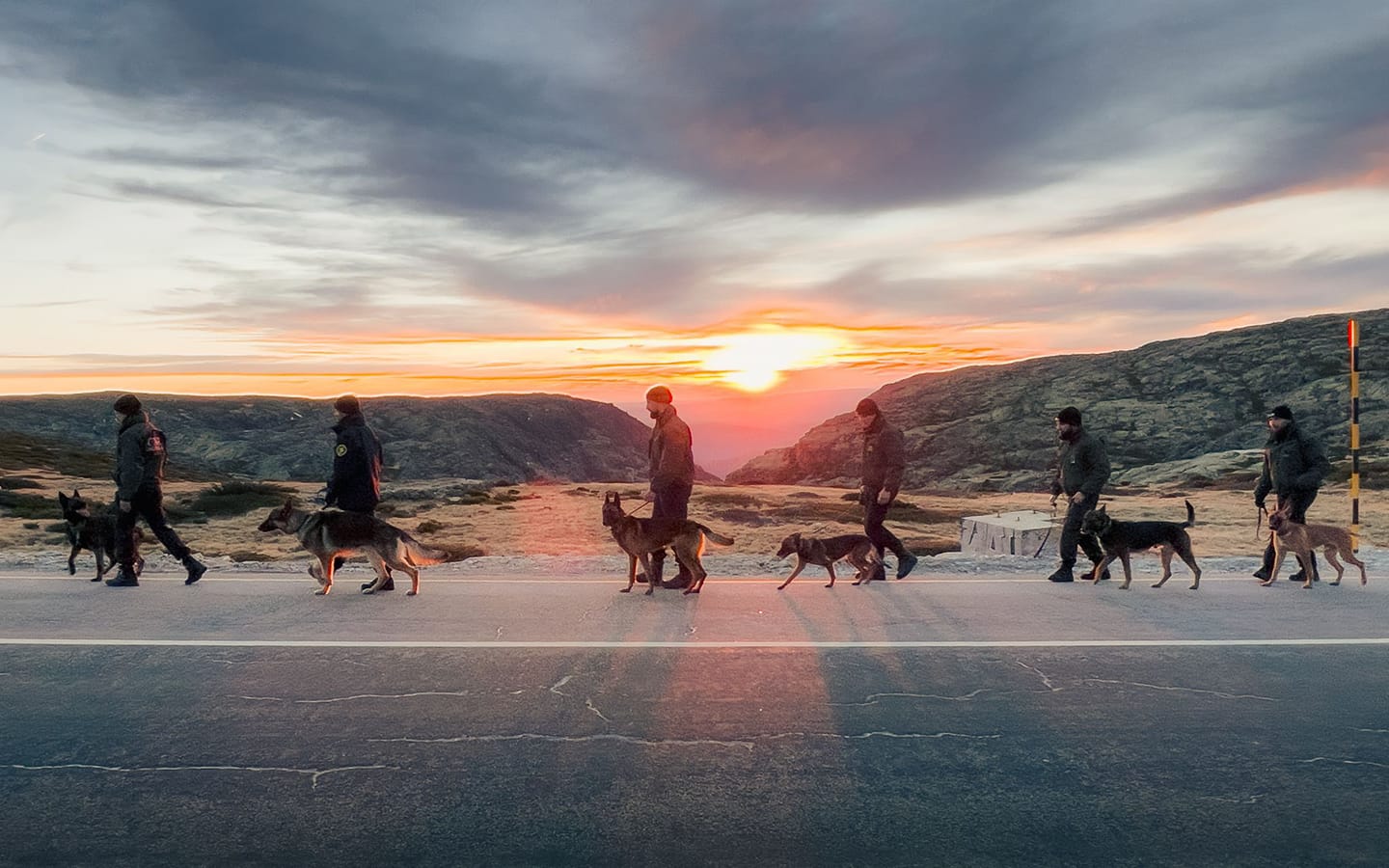Illegal killing, poisoning, trafficking and other wildlife crimes are not only threatening biodiversity but also put public safety and health at risk. The Wildlife Crime Academy has been set up to strengthen Europe’s collective response to this type of crime. More than 100 professionals involved in combating environmental crime in 17 countries have already received specialized training. And now, Portugal is part of this growing network thanks to the LIFE Aegypius Return project.

Wildlife Crime Academy, a proven model
The Wildlife Crime Academy (WCA) is a training programme for professionals and institutions in various countries to strengthen the fight against wildlife crime. The professionals targeted are the police, nature conservation authorities, prosecutors, toxicologists, veterinarians, professionals from Environmental NGOs, among others involved in detecting and prosecuting wildlife crime.
The initiative was initially launched in 2021 as part of the LIFE BalkanDetox programme, whose main objective was to strengthen the capacities of Balkan countries to combat illegal poisoning. The programme was very successful, resulting in a very significant decrease in crimes related to the use of poison in the Balkans. This training was a replica of the model implemented in the Andalusia region, in Spain, which has reduced poisoning-related incidents by 90% in recent decades. These results were possible thanks to training, the strategic law enforcement, a strengthening of forensic expertise and the coordination of operations between the various institutions involved in each case. In view of the good results achieved in Andalusia and the Balkans, the Vulture Conservation Foundation has extended the training programme to more countries by approving the LIFE Wildlife Crime Academy project. The WCA project will run until 2028, with financial support from the European Union’s LIFE programme.
Between 2021 and 2024, the WCA held five international courses – two Level I, two Level II and one Level III – involving 66 professionals from 13 countries: Albania, Bosnia and Herzegovina, Bulgaria, Croatia, Cyprus, Greece, Egypt, Lebanon, Italy, Morocco, North Macedonia, Serbia and Spain.
After participating in the international courses, each country organizes local training actions, with a multiplier effect. In total, more than 650 additional professionals have been trained thanks to the alumni who have led national courses.

Practical workshops ©Iñigo Fajardo
Portugal joins the Academy
From June 10 to 12, 2025, another Level I training took place, titled ‘Foundations of Forensic and Police Investigation in Wildlife Crime’ and focused on tackling illegal wildlife killing, poisoning and trapping.
This edition was attended by 37 professionals from nine countries – Bulgaria, Cyprus, France, Greece, Montenegro, Portugal, Serbia, Slovenia and Spain – who, over three intensive days were trained in securing crime scenes, conducting forensic necropsies, collecting toxicological evidence, and managing wildlife crime investigations.
The course took place at the International University of Andalusia, in La Rábida (Spain), and marked the first training under the WCA project. The Junta de Andalucía, internationally recognized for its leadership in this field, again delivered the course, sharing insights grounded in decades of expertise.
The next steps in each country, including Portugal, include taking part in international level II and III training, organizing multiplier training at national level and setting up a working group. Each group will make a diagnosis of the general situation of wildlife crime in the country and propose measures to improve the effectiveness in the various stages of analyzing wildlife crimes. The WCA will also promote cross-border collaboration and information sharing through platforms such as Europol and CMS/MIKT.
In Portugal, the institutions that will be trained or involved in the WCA include, among others, the National Republican Guard (GNR) and the respective Nature and Environmental Protection Service (SEPNA), the Institute for Nature Conservation and Forests (ICNF), the National Network of Recovery Centers for Fauna, the National Network of Necropsy and Toxicology Centers, environmental NGOs, and the Attorney General’s Office .
In Portugal, these activities will be coordinated by the Vulture Conservation Foundation, in partnership with the League for the Protection of Nature (LPN) and the Portuguese Society for the Study of Birds (SPEA), optimizing the experience already acquired in projects such as LIFE Imperial, LIFE Rupis and LIFE Nature Guardians. The WCA’s work in Portugal also complements the efforts carried out under the LIFE Aegypius Return project, which aims to protect the Cinereous Vulture (Aegypius monachus) and reduce threats to this species, such as illegal poisoning, shooting and disturbance.

Long-term impact
The Wildlife Crime Academy is not only training professionals — it’s helping reshape how institutions think about and respond to wildlife crime. Each participant, whether trained by the Academy or through national courses, will be better prepared to act, collaborate, and protect wildlife from one of today’s most pressing threats.
Over the next four years, the WCA will:
• Train 100 new wildlife crime experts through four international cohorts;
• Deliver national training programmes in at least 15 countries across Europe, North Africa and the Caucasus, reaching 1,000+ professionals;
• Establish formal working groups connecting enforcement and environmental authorities;
• Promote cross-border collaboration and intelligence-sharing through platforms like Europol and CMS/MIKT.
Target countries include Slovenia, Montenegro, Romania, the northern part of Cyprus, Portugal, Egypt, Morocco, Tunisia, Georgia, Turkey, France, Bulgaria, Greece, Serbia and Spain.

Practical exam ©Iñigo Fajardo
Acknowledgements
This initiative is possible thanks to the collaboration of the Vulture Conservation Foundation, Junta de Andalucía and the EU LIFE Programme, with the strategic support of: MITECO, Guardia Civil, Europol, CMS/MIKT, BirdLife International, International University of Andalusia, MAVA Foundation, EuroNatur and the governments of the participating countries.





